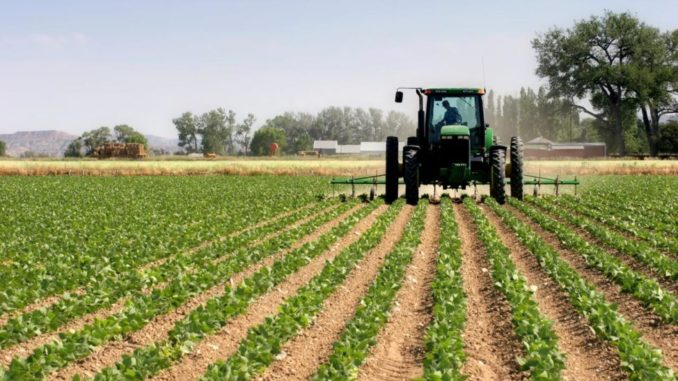
A report that Nigerian food products are being rejected in the international market is not cheery against the backdrop of the quest for the diversification of the economy and strong currency. The over dependence on oil has stunted economic development and is no longer sustainable. We need alternative non-oil sources of revenue to boost the economy.
Therefore, we cannot afford to lose on the agricultural products exportation front. For, agriculture constituted the main source of foreign revenue before oil birthed and took over and agriculture was abandoned.
The truth today is that there is a new drive to revive agriculture and return it to its pride of place. The potentials are huge and inestimable. The economy would be better off if agriculture becomes the major source of revenue instead of oil.
Certainly, non-oil exports, in form of agricultural products, constitute a viable alternative source of revenue, which is why everything should be done to ensure the safety of the food products locally and for export.
Achieving this requires the collaboration of farmers and the various agencies of government concerned with food production, processing, quality control and export. This would ensure that the exports meet international standards and are not rejected in the international market. The trade rules must be followed to make our exports acceptable.
To this end, it is timely that relevant regulatory agencies of foods and export have been jolted and have expressed worry over the continued rejection of Nigerian food products in the international market, even as they have teamed up to ensure the safety of the foods locally and internationally. The National Agency for Food and Drug Administration and Control (NAFDAC), in collaboration with its sister agencies including the Nigerian Customs Service, Standard Organisation of Nigeria, SON, Shippers Councils, Nigeria Export Promotion Council (NEPC), Nigeria Agricultural and Quarantine Service (NAQS), among others, are reportedly beginning a nationwide awareness on food safety under the Inter-agency collaboration forum.
Speaking to journalists shortly after a meeting of the agencies, tagged: “Effective Inter-agencies Collaboration as a Means to Diversify Nigerian Economy through Export,” the Director-General of NAFDAC, Prof. Christianah Adeyeye, expressed concerns about the rejection of Nigerian food products abroad, saying that the rejection was not only about losing money but also losing Nigeria’s image.
“We are working together to ensure that bad products do not go out of the country anymore and that is one of the reasons we put this meeting so that we can consolidate our efforts. From our discussions, we are planning to consolidate through enlightenment, targeted sensitisation and consolidated testing of these products between SON and NAFDAC. We want our people to understand the right thing to do before they ship their products outside the country,” Adeyeye stated.
There is no doubt the inter-agency collaboration would motivate diversification of the economy through systematic mechanism to facilitate export for Nigeria, the organised private sector (OPS) organisations such as Manufacturers Association of Nigeria (MAN) and local Chambers of Commerce and Industry should brace up too as mediocrity in production and packaging has been part of the challenges in this regard.
There is no doubt that Nigeria is eager to export agricultural produce as a way of diversifying the economy. Given the renewed enthusiasm by many state governments as well as private individuals to embark on food production, hope is rising that in no distant time, there would be enough food for local consumption and export. This possibility is evident in the quantum of rice and other crops being produced. There is need, therefore, for government to ensure that nothing hinders the rising export drive. The farmers and exporters would have no choice but to comply with any directives that government may issue in this regard.
This is a serious challenge that should attract the attention of the highest level of government at all levels. Specifically, the Nigerian Export Promotion Council should wake up too to get even the relevant faculties of our tertiary institutions to step up research in production and packaging of products for exports. This is a digital engineering age. This is a time of innovation through research that our universities and polytechnics should embrace. So, knowledge workers, in this realm should show up for the country. If we lose out on export drive, there is no way economy can improve. It is time for all stakeholders to wake up to this challenge, lest we should be the last even in the continent.
END

Be the first to comment